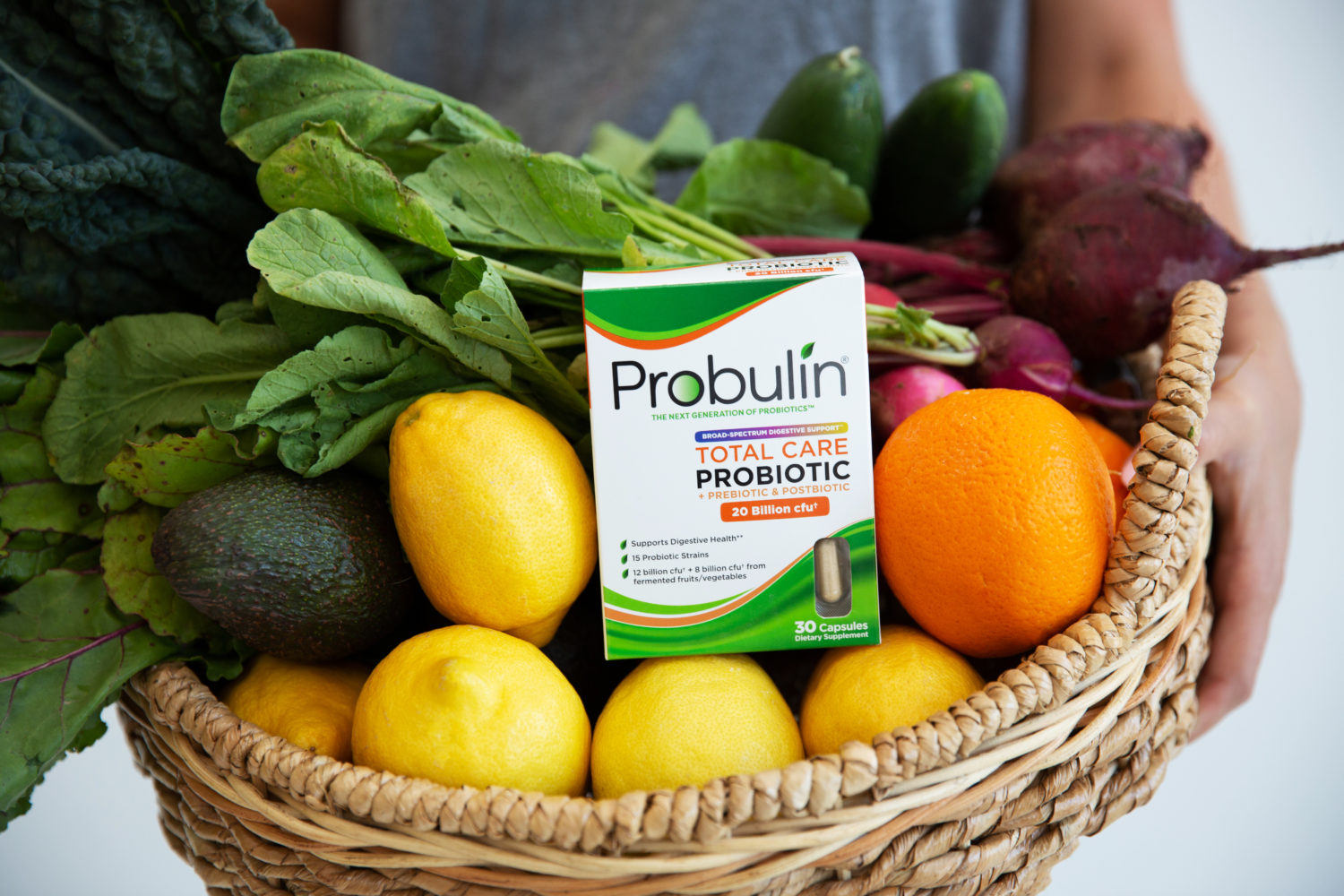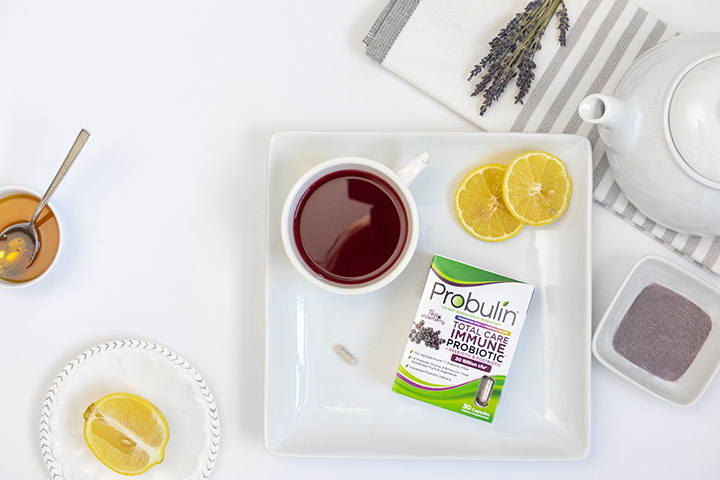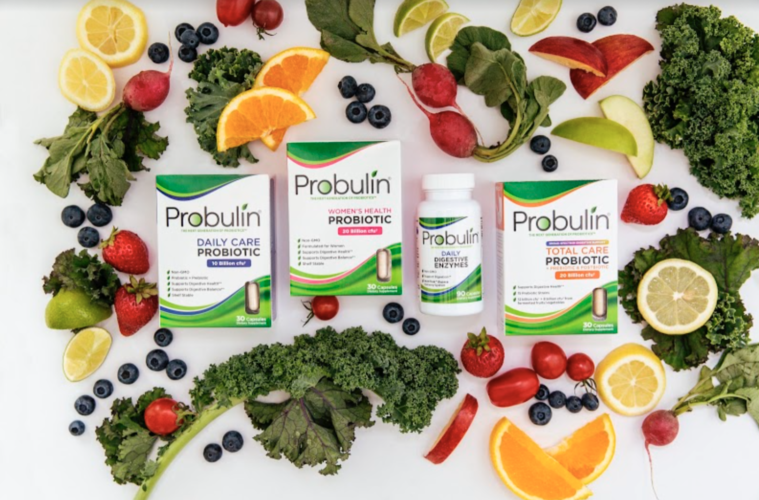*Brand Partner Content*
Do You Need Prebiotics AND Probiotics?
Prebiotics vs. Probiotics.
Probiotics vs. Prebiotics.
Don’t even get us started on Prebiotic vs probiotic foods.
The debates have carried on amongst professionals for years regarding the advantages of taking probiotics with added prebiotics.
So what’s the difference between a prebiotic and a probiotic?
Probiotics are made up of the good bacteria that are naturally produced and live within the gut. These groups of bacteria–collectively called your microbiome–exist in different parts of the body, like the gut or the reproductive tracts for women, with our bodies serving as home to hundreds of trillions of beneficial and balancing microorganisms.
While the body naturally produces many of these bacteria, what we consume, how we live, and other unique factors can contribute to–or compromise– the health and makeup of these colonies. When this happens, it may be worthwhile to look for a trusted probiotic supplement that you can add to your daily wellness routine.
Generally recognized as safe for all to take, probiotic supplements offer live friendly bacteria that may work wonders to help support the bacteria in your body, keeping your tummy (among many other things) as balanced as can be. The catch? In order to make it to the part of your gut that they can be most effective, they have to make it through the acidic environment of the stomach. This great journey requires protection for the bacteria’s survival, and food–they have to “eat” after all.
Enter prebiotics, the food that probiotics nosh on as they make their way to their digestive-support destiny.
This all sounds great. So why all the probiotic versus prebiotic debate?
When looking for different probiotics, you might have come across the word prebiotics. What are prebiotics? Are they necessary when taking probiotics? What brands are selling prebiotics with probiotics?
Let’s take a look at all the ins and outs of prebiotics, how they can positively impact the probiotic journey, and answer your questions about prebiotic vs. probiotic.
What Is A Prebiotic
Prebiotics aren’t actually bacteria. They’re typically fibers that serve as food for the good bacteria in probiotics. Prebiotic fiber, like inulin, for example, can be found in several foods. Bananas, chicory root, asparagus, artichokes and onions along with other prebiotic sources like garlic, onions, and different types of legumes.
While you can find prebiotics in your diet, they don’t serve your friendly flora in the same way so they are typically added to your favorite probiotic. (Speaking of favorites, we did discover a favorite brand as we dug in and did our research. More on that in a second.)
Sometimes you can find “synbiotic” foods, which means they contain both prebiotics and probiotics like cheese, kefir, and some types of fermented foods. Prebiotics are consumed by the bacteria in the gut, breaking down into short-chain fatty acids that are released (postbiotics) into blood circulation and offering benefits to the gastrointestinal tracts and other distant organs.
So, the question isn’t so much which is better, Prebiotic vs Probiotic? It’s more a question of: why isn’t everyone taking a probiotic PLUS prebiotic?
You’re in the right place. As we’ve discussed, prebiotics vs. probiotics isn’t a fair discussion because they are not the same things. And in fact they are teammates in the game of winning your health!
Prebiotics are the food, the dietary fiber like Inulin, that feeds the bacteria in the body. They are carbohydrates that can’t be digested, so in turn, they fuel the probiotics in their colonies. Probiotics are the bacteria themselves.
When considering whether you need prebiotics with your daily probiotics, the answer is most likely yes. Most strains of probiotics have a better chance of survival with prebiotics in the formula, too. Of course, you can take probiotics without prebiotics added to them, but prebiotics may impact the effectiveness and health of the probiotics as they journey and set up shop to and in your gut. There are many reports on the beneficial effects of probiotics on the gut microbiome, and when prebiotics are added, they help ensure a higher survival rate of the beneficial bacteria.
Now that you know how awesome prebiotics and probiotics are together, we’ve done the work of researching and presenting you with five incredible probiotics products on the market that offer you the synbiotics you’re after.
5 Probiotic Formulas That Include Prebiotics to Power the Probiotics
You might feel overwhelmed with the number of probiotics available today. It can feel daunting trying to research the best ones available, which is why we’ve created this list of five powerful probiotics that help keep those bacteria healthy using prebiotics in the formulation.

1. Probulin Total Care Probiotics
- Price: $$
- CFU Strength: 20 billion CFU; 15 strains
- Capsules per day: 1
Probulin Total Care Probiotics are impressive to say the least. Not only do they feature the prebiotic inulin, they also include special electrolyte hydration that protects the bacteria . To top it off, they use this really unique “seaweed submarine” that keeps the prebiotic and probiotics safe as the capsule comes into contact with the acid-rich environment of the stomach.
Featuring 15 strains of hardy, healthy bacteria and 20 billion CFU, Total Care Probiotics are designed to arrive alive in the gut without needing an excessive amount of bacteria. An important factor when determining a high-quality probiotic is whether it’s been tested for safety and efficacy, and Total Care Probiotics are always third-party lab tested and free from common allergens like gluten, dairy, soy, or GMOs.
You can purchase Probulin Total Care Probiotics here.
2. ZenWise Digestive Enzymes With Prebiotics + Probiotics
- Price: $
- CFU Strength: 1 billion CFU; 10 strains
- Capsules per day: 1
Zenwise Digestive Enzymes with Prebiotics + Probiotics are perfect for those of you looking for extra support in helping you digest your food. Digestive enzymes help break down hard-to-digest food like fried foods, meat, and dairy, and with the addition of prebiotics and probiotics, may support gut health and a happy digestive system.
Inside these capsules, you’ll find prebiotics and enzymes, 1 billion CFU from a 10-strain blend, a spore-forming probiotic, and a sea vegetable complex. Take a capsule before meals and find the support you need to break down your food.
3. Hum Skin Squad Pre+Probiotic
- Price: $$$$
- CFU Strength: 40 bn organisms; 9 strains
- Capsules per day: 2
You can purchase Zenwise Digestive Enzymes with Prebiotics + Probiotics here.
Hum Skin Squad Pre+Probiotic is for those looking for skin support from the inside out. This unique probiotic contains the prebiotic konjac root, which they say may help support a healthier, smoother complexion. The skin squad features nine strains of bacteria and 40 billion CFUs. If you’re looking for a skin-supporting probiotic that includes multi-functional and beneficial prebiotics, then give Hum Skin Squad a try!
When looking for different probiotics for skin health, there are also topical options available.
(For example, Probulin, number one on this list, has an entire line of probiotics-based skincare products. You’ll find day and night creams, facial serums, eye cream, cleansing gel, and so much more. See for yourself right here.)
You can purchase Hum Skin Squad Pre+Probiotic here.
4. Primal Probiotics
- Price: $$$
- CFU Strength: 10 billion CFU; 4 strains
- Capsules per day: 1
Primal Probiotics feature 12 dynamic probiotics strains and 31 billion CFU. While a high CFU count isn’t necessary if the delivery system is effective, Primal Probiotics are manufactured in a GMP-certified facility (good manufacturing practices) and are USA-made with high-quality strains. As with all of the probiotics on this list, you’ll also find prebiotics within this blend that are intended to nourish the probiotics as they journey to your gut.
Primal Probiotics are designed to support your gut health efficiently and effectively — all we could ever ask from a probiotic.
You can purchase Primal Probiotics here.
5. Sunwarrior Probiotics
- Price: $$$
- CFU Strength: 10 billion CFU; 4 strains
- Capsules per day: 1
Sunwarrior Probiotics are a playful brand that doesn’t skimp on quality. Sunwarrior Probiotics utilize shelf-stable, soil-based organisms, chloroplasts, and prebiotics to deliver optimal gut support and immune function. In addition, these fun probiotics capsules are actually green, as opposed to the white powder that many see in a probiotic. They contain Solarplast, a spinach extract that is equivalent to 10 cups of spinach, and they also feature four different strains of non-fiber phage prebiotics that feed on the gut flora and help them increase in number.
Sunwarrior Probiotics are free from common allergens like gluten, dairy, and soy. They are also vegan, just like Probulin Total Care Probiotics.
You can purchase Sunwarrior Probiotics here.

The Takeaway
Probiotic vs prebiotic? The answer is both. Always both. The advantages of taking probiotics that also contain prebiotics mean that you’ll have healthier, more vital bacteria arriving in the gut, along with more that actually survive the journey. These five brands of probiotics plus prebiotics are a great place to start on your probiotics and gut health adventure. You can be sure that each brand is mindful about creating a powerful and beneficial blend of goodness that will keep on giving to your body (and the colonies that live inside it) while you continue to nurture your gut.
Advertising disclosure: We may receive compensation for some of the links in our stories. Thank you for supporting LA Weekly and our advertisers.

